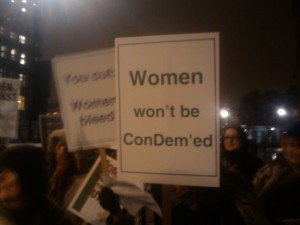I was delighted to be an observer last weekend for the England and Wales Party at the Scottish conference. Aside from drinking some (well quite a bit actually) of homemade damson gin, I did get to lots of sessions, and eventually get the hang of the rather complicated but certainly efficient system for voting in plenary sessions.
This is a collection of notes and highlights..
Robyn Harper, who will be stepping down next May after 12 years as an MSP, recalled how he came to join the party. A former student had given him a joining form which he put in his coat pocket, where it stayed until the day the Rainbow Warrior was bombed. That spurred him into joining what was then the Ecology Party.
The lesson from this: always carry and hand out joining leaflets…
He was highly positive about next year’s Scottish Parliamentary elections, with the nice line “the best way to predict the future is to invent it”.
“We should be able to get at least 1% off each of then Tories, Lib Dems and Nationalists.” If the Greens did that, they’d be in the running for 9 seats andd quite possibly be in a position to shape or be part of the next government. “If the chance comes for Green ministers we need to be ready.”
The EIS* fringe session
Jacqui Helburn, EIS director, said Scots had to defend against some of the worst ideological excesses of the Condems “down south,” as represented by Academy and “free” schools creeping into Scotland. The comprehensive system had to be defended.
The problems had already started, she said. The SNP had promised to maintain 52,000 teachers and keep class sizes down but already 3,500 had lost their jobs and of teachers who had completed their induction year this year, only 10% now had permanent jobs.
The EIS is running a big campaign “Why Must Our Children Pay?”
MSP Robyn Harper, a former teacher, highlighted the importance of music, drama, PE and movement classes. These were highlighted in the “Curriculum for Excellence”, which was proving very popular in primary schools, he said, although secondaries were finding it more difficult.
Jacqui said that it was music and singing lessons at school that had given her the confidence to be where she is now. Robyn said: “I have no problem with defending to the death music lessons, in terms of the confidence, teamworking, empathy and other skills they help develop.” In times of cutbacks they were always the first to suffer, “but they are at the centre of the Curriculum for Excellence”.
He added that it was not just teaching that was critical in terms of funding. “We have 50 areas of multiple deprivation. They need social work inputs.”
(* Interesting organisation – they represent both primary and secondary teachers and have achieved an integrated payscale for them, I found through chatting on their stall.)
Going Carbon Neutral Stirling
Rachel Nunn has run a highly regarded project in Stirling charged with “getting the mass audience that wwas unengaged in sustainability and carbon reduction” to get involved.
She said its aim was to create a new social norm so that even after the project ended behaviour change continued.
It’s clearly regarded as a roaring success and has rigorous procedures, with monthly evaluations and redrawing of the project in response. It now has 30% of people involved in carbon reduction with a budget of £1.5m, nine staff over four years.
There’s a lot of selling involved – staff “cold call” organisations to ask them to get involved – 65% say ‘yes’ and that involves contact controlled by the initial organisation – “it might be two minute with a football club befor they run out on the pitch to half an hour with the knitting group.”
Ninety-five per cent of groups agree to become involved, “People know it is the right thing to do, and we’re helped by our high visibility in Stirling.”
But it was there that the story got a bit less positive. “Of the 241 groups that said ‘yes’ 126 have done any meaningful activity.”
Additionally, it had been hoped that reaching families through children in schools would be effective, but a recent evaluation found that less than 2% of parents knew about the carbon cutter plans. “We try to reach them through emails, newsletters, homework — all the usuall channels — but it seems they don’t pay attention.”
Her conclusion was that something of an impasse has been reached: “People are bored with the easy stuff and can’t quite be bothered to tackle the hard stuff.”
She said that often people asked if the programme could be replicate by voluntary effort. She clearly thought not – “It is asking too much of volunteers. You need the right set of skills – often selling skills more usually found in the commercial sector – and the time to spend on speaking to people.”


 About
About